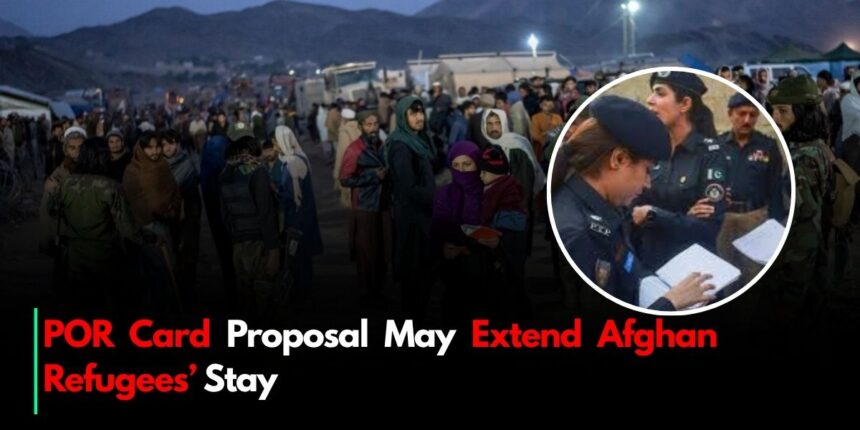The federal government of Pakistan has made a big move by bringing a proposal to the Cabinet to let Afghan refugees with Proof of Registration (PoR) cards stay in the country longer. A six-month extension beyond the present expiration date is being considered. This shows that Islamabad cares about both humanitarian issues and regional stability.
Background: The Problems of PoR Cardholders
About 1.3 million Afghan refugees in Pakistan are formally registered with the UNHCR’s PoR system. Another 800,000 have Afghan Citizenship Cards, while hundreds of thousands are not registered at all. People were worried about mass repatriation and societal unrest when these PoR cards ran out on June 30, 2025.
In July 2024, Islamabad gave a one-year extension because of international requests and logistical problems with repatriation. UNHCR hailed the initiative, saying it was a “critical lifeline” for refugees as more people tried to go home.
Six-Month Proposal: What Is at Stake
A high-level inter-ministerial conference with SAFRON (States and Frontier Regions), Interior, Foreign Affairs, and security agencies came up with the newest recommendation, which calls for a three- to six-month extension. Officials gave strong reasons: People that have PoR have businesses, kids in school, and property, therefore they need more time to get things in order.
The proposal’s submission to the Cabinet marks a major step towards adopting policies that are more calibrated, balancing Nigeria’s need for internal security with the need to help refugees integrate into society and the economy.
Humanitarian and diplomatic concerns
The problem has diplomatic importance.Amir Khan Muttaqi, Afghanistan’s foreign affairs minister, requested a humane and progressive return because Kabul was unable to accommodate so many people in a short time. Pakistan lacks the will to meet the request as all relevant authorities have to consider its relationship with Pakistan and the instability surrounding the country.
International humanitarian agencies, such as Amnesty International and UNHCR, referred to the proposed plans to repatriate as they were worried for undocumented migrants returning to a life threatening situation.
Why this matters – Striking the balance between rights and safety
If Pakistan’s PoR is still valid then that will signal to the world that Pakistan is willing to honour international humanitarian standards of protection for refugees, ensuring backed to not only its own humanitarian commitments but also its human obligations. It would also provide some degree of dignity and perhaps stability to the refugees after years of “living, studying and working” in the country.
Officials are still being careful, though. Since October 2023, more than 844,000 undocumented Afghans have been forced to leave their homes as part of recent deportation campaigns spurred by security concerns. Government officials say that controlled and recorded repatriation is happening, and that the proposed extension solely affects legitimate, registered refugees.
What Comes Next: Looking Ahead
With the Cabinet review coming up soon, a number of things could happen:
A six-month extension is likely to happen, and it will help both refugees and the government.
It might be possible to approve a longer-term plan that is linked to better logistics or phased returns.
The Cabinet might also insist on strong deadline enforcement to clear up any confusion and make repatriation easier.
The choice will set the tone for Pakistan’s approach on refugees for the next year. It might either confirm its role as a good host or show that it is moving towards faster expulsion.
Last Thoughts
The suggestion to make PoR cards valid for longer is more than just a technical step; it shows that Pakistan needs to find a balance between kindness and vigilance. This extension would be a relief and a way for millions of Afghan families who have become part of Pakistani society to stay in Pakistan. At the same time, it would show how well Islamabad can manage migration in a humanitarian way while keeping the country safe.
The Cabinet’s decision to either extend or expel Afghan refugees will have an impact on the lives of those refugees and on Pakistan’s reputation as a responsible partner in regional humanitarian governance.








